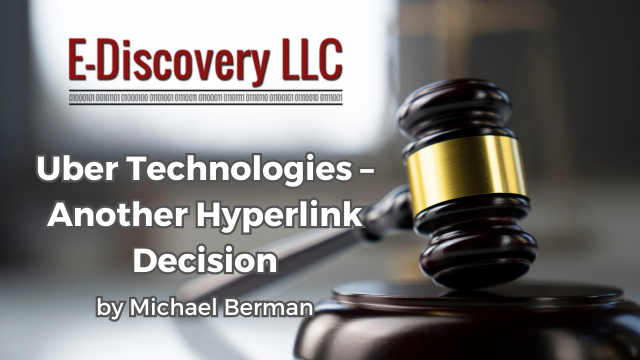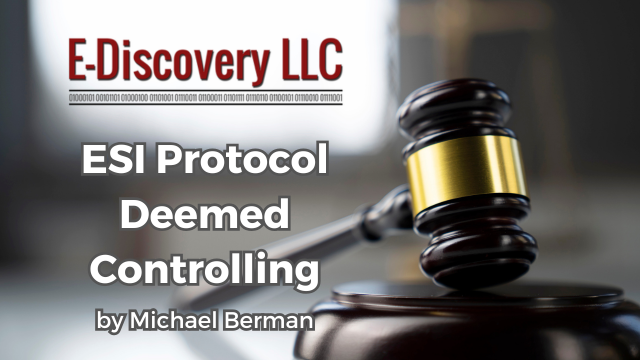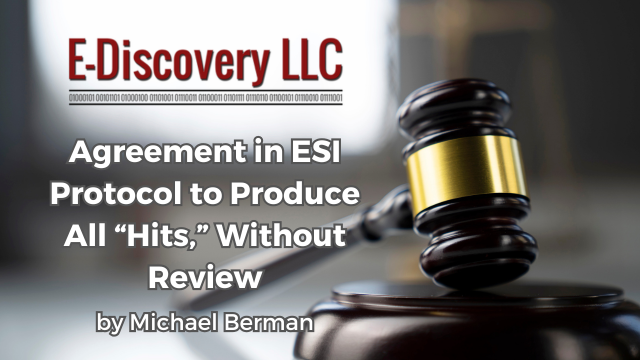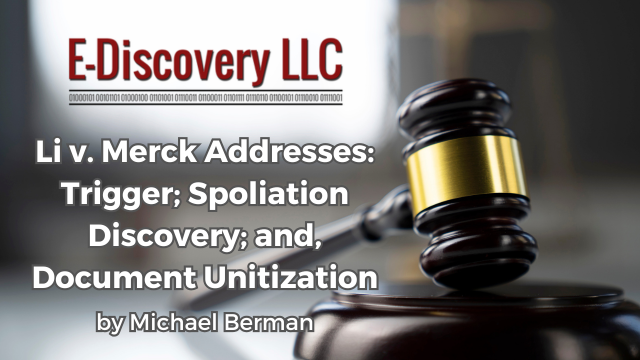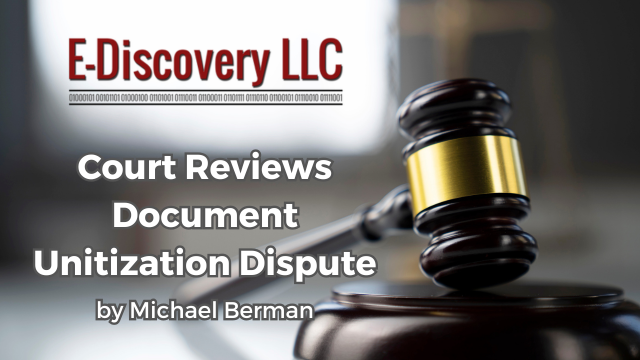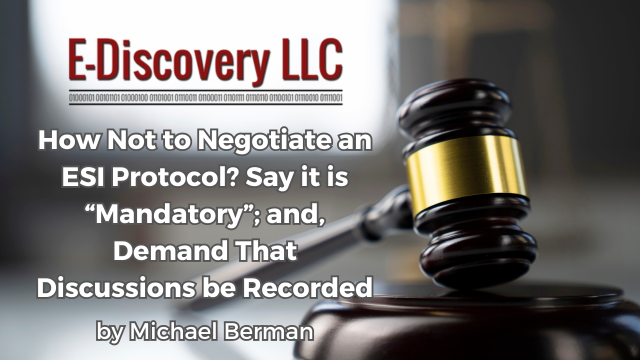
How Not to Negotiate an ESI Protocol? Say it is “Mandatory”; and, Demand That Discussions be Recorded
This article examines key missteps in Wilbert v. Pyramid Healthcare, where the plaintiff’s insistence on recording a Rule 26(f) conference and imposing a “mandatory” ESI plan were deemed improper. The court's order highlights the necessity of cooperation and proportionality in ESI protocol negotiations.


